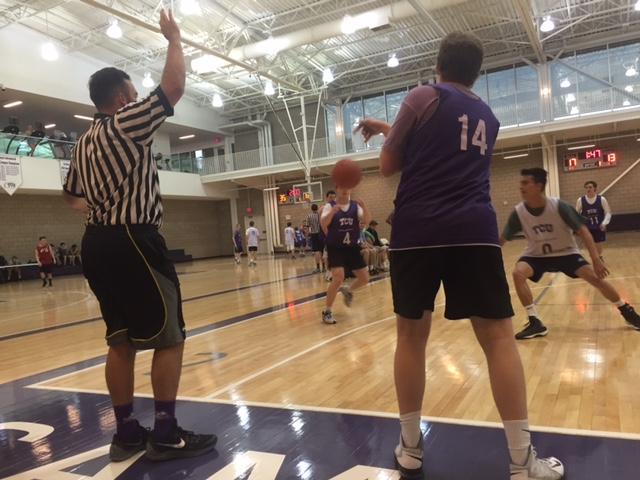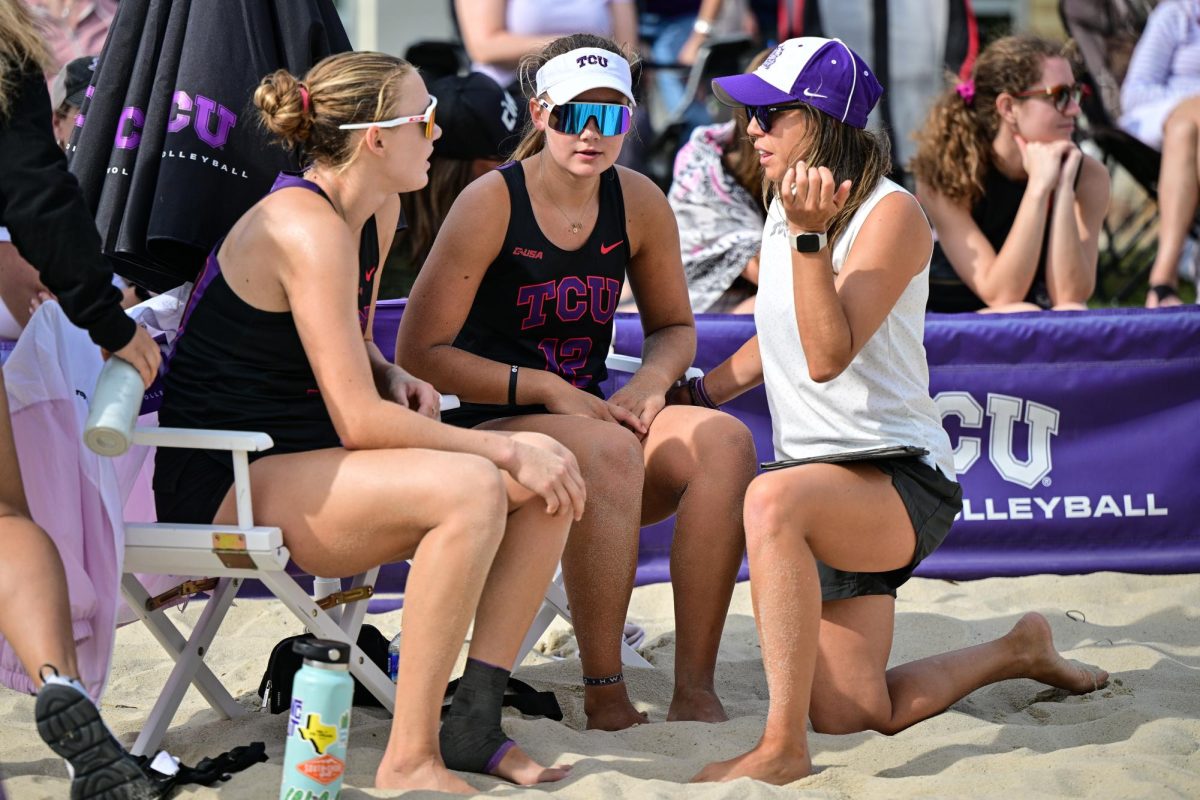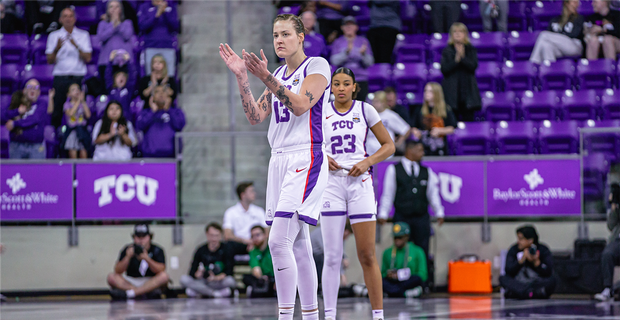College is all about developing life skills and learning how to handle criticism in preparation for a career. For some, that comes in the form of blowing a whistle.
TCU Campus Recreation gives students the chance to serve as referees in intramural sports.
Students first apply online if they are interested in becoming an intramural referee. After an interview with Assistant Director of Campus Recreation Sheldon Tate, students start a lengthy training process.
“We break it down into edible chunks and take them through it,” Tate said.
Training includes three main steps. The first step of the process is structured around a classroom setting. Students learn the basics of rules, positions and philosophies, which are taught visually through PowerPoint presentations.
After a quiz to test the trainees’ knowledge, step two of training begins. Tate said this part of training focuses on practical on-the-court work.
“We take what we saw and transform it to where you are actually a part of it,” Tate said.
Each student gets to work and practice at each position they could be in during a game. After two to four hours of getting used to their roles, the students are ready to move on to step three.
In the last part of the process, trainees work practice games. Campus Recreation will invite fraternities and sororities to play in these friendly games to give the new referees some work.
Tate said these games are great because they allow for teachable moments.
“We can stop play and say, not only did we not get this call right, but let’s look at why we didn’t get it right,” Tate said. “Maybe our positioning was off. Maybe we were looking somewhere we shouldn’t be. But we are able to chessboard it and actually move things around.”
Although it takes a lot of work, Tate said he thinks the training portion is important to set the students up for success in the long run.
Once a student has completed the preparation process, he or she starts the journey of an intramural referee. Each person is evaluated on a night-to-night basis.
“We’re all about continuing the education and want to help the students get better as they’re going,” Tate said.
Those interested in becoming an intramural referee can apply on the TCU Campus Recreation website.









